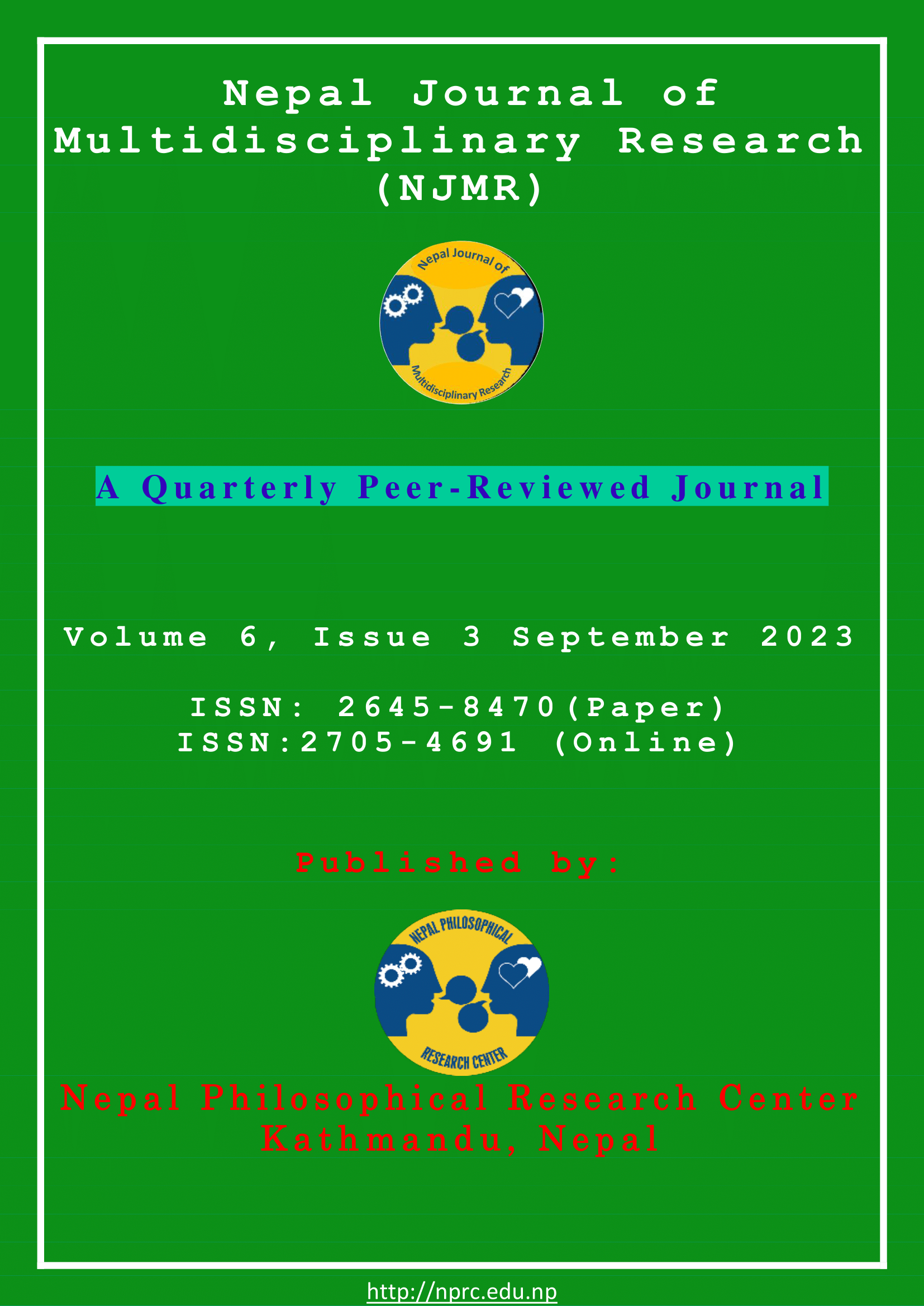English Teachers’ Actions in Action Research: Developing a Template for Classroom Purpose
DOI:
https://doi.org/10.3126/njmr.v6i3.58965Keywords:
Action research design, cyclical, planning, observation, action research template, reflectionAbstract
Action research (AR) has become increasingly common in applied linguistics studies as an empirical method that may be extended to other research studies and higher education. Action research consists of taking action and analyzing how it affects student learning. Though there are two components namely ‘action’ and ‘research’ at the heart of action research, classroom teachers often prioritize action over research. The goal of ‘action’ in action research is to bring about positive change, and improvement in the participants’ social situation. Through self-reflection, analysis, methodical planning, and execution, action research fosters classroom transformation through improving teaching-learning practices. Action research is a qualitative, disciplined method of inquiry carried out by and for individuals who are carrying out the action. Action research is primarily used to support the "actor" in enhancing and/or modifying his or her activities. This paper discusses the fundamental philosophical presuppositions, paradigms, history, and theoretical bases of action research. The paper also describes the primary methodologies and techniques and tools used in action research. In addition, the paper presents an action research template which can be used by English teachers for classroom purposes.
Downloads
Downloads
Published
How to Cite
Issue
Section
License
Copyright (c) 2023 Gopal Prasad Pandey

This work is licensed under a Creative Commons Attribution-NonCommercial 4.0 International License.
This license enables reusers to distribute, remix, adapt, and build upon the material in any medium or format for noncommercial purposes only, and only so long as attribution is given to the creator.




